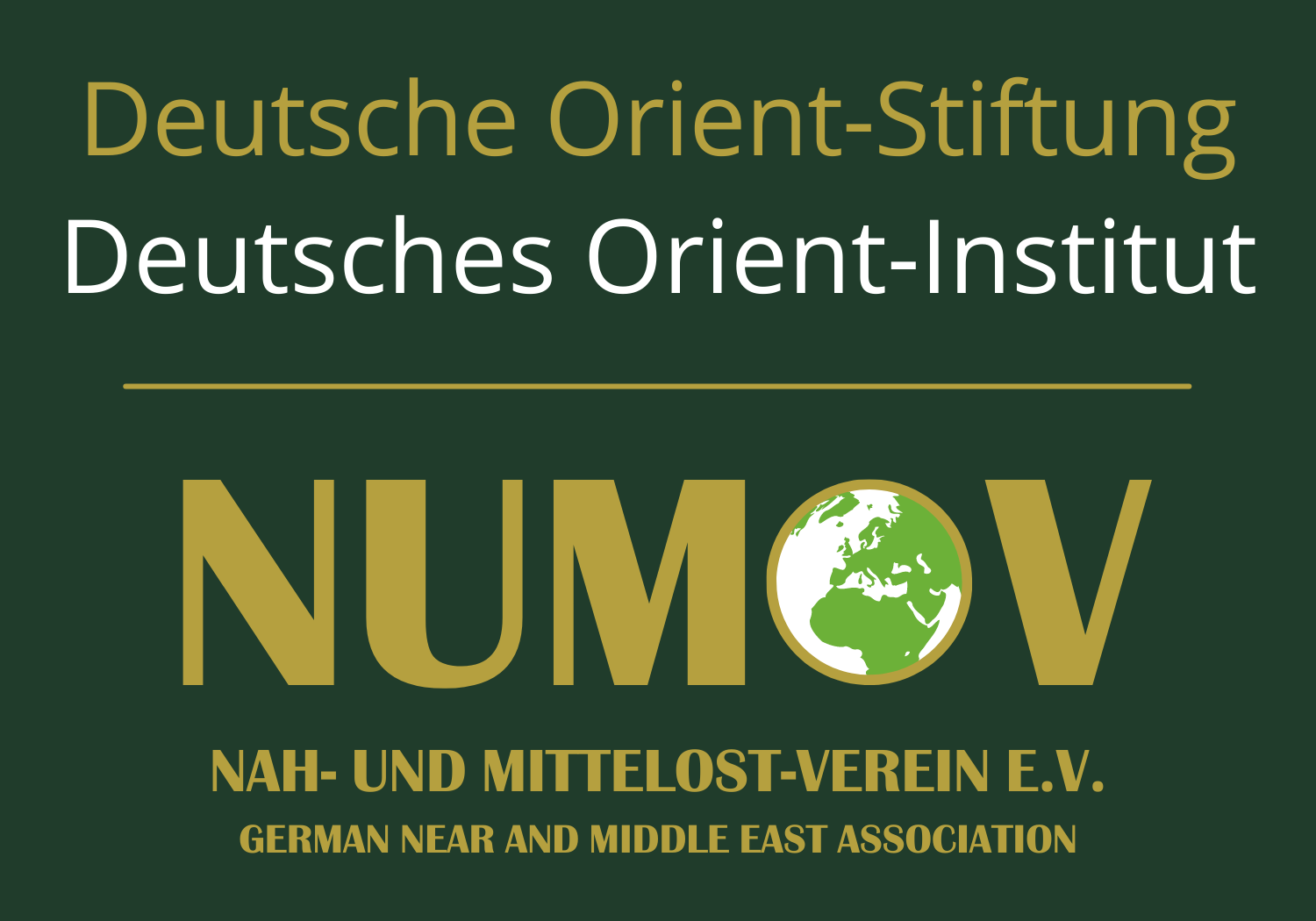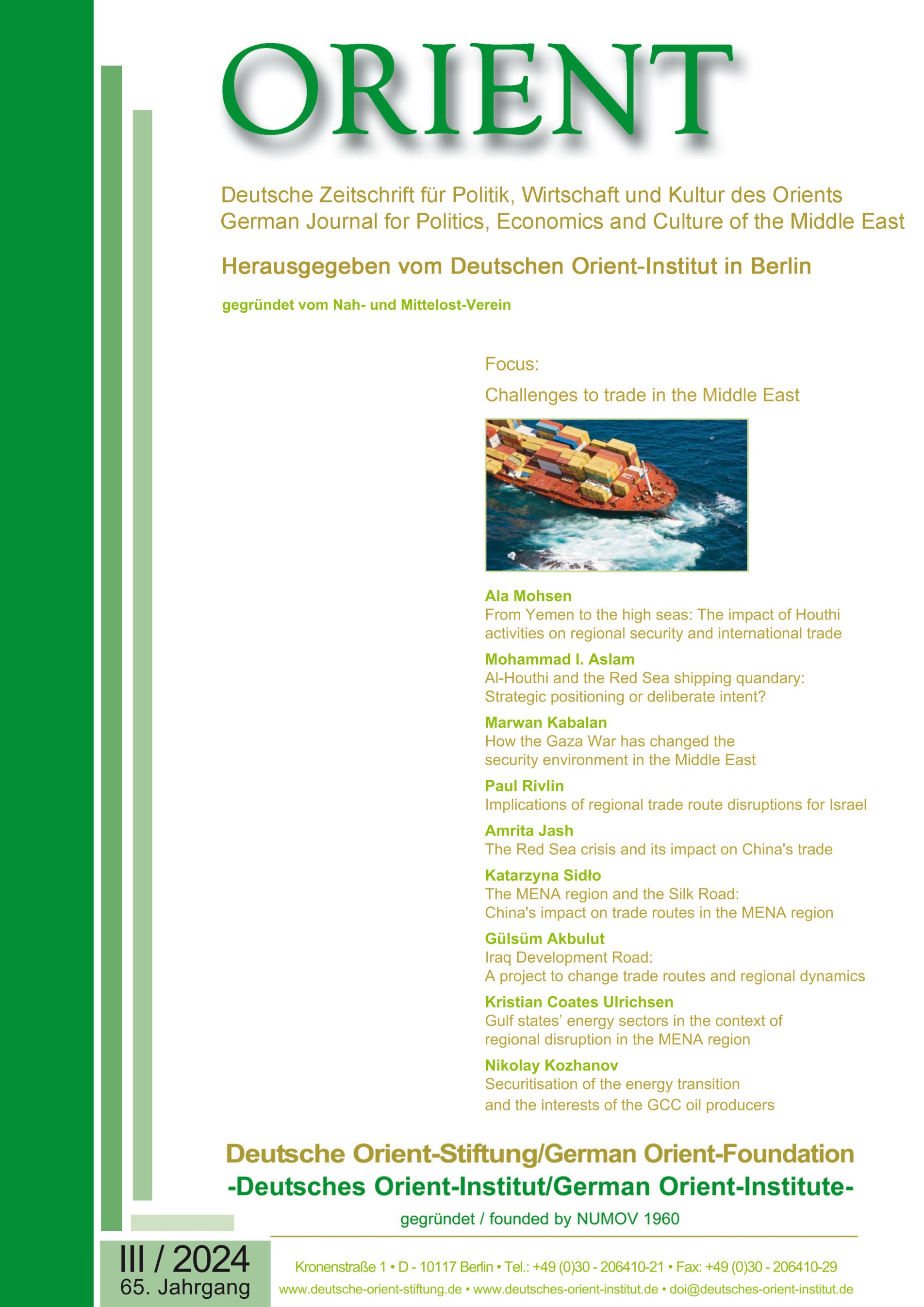Please access this edition of our quarterly journal through the ORIENT website
The Middle East serves as a key nexus for global trade routes. These are crucial for the seamless flow of goods, energy and commodities, yet they are fraught with risks, including geopolitical tensions, piracy and blockades, which can impede vital arteries of the global economy. This edition of our quarterly journal examines related geopolitical, security and economic issues.
We begin this issue with a contribution by Ala Mohsen on who the Houthis are and how they are endangering international commercial shipping in the Red Sea, a key facilitator of global trade. Mohammad I. Aslam then surmises motives behind these activities, while Marwan Kabalan considers the new regional security situation following the attacks on Israel on 7th October and consequent outbreak of war in Gaza, which have had far-reaching effects, including the aforementioned disruption of global supply chains. Next, Paul Rivlin looks into the implications of these recent developments for the Israeli economy. Amrita Jash broadens the scope to the response of China to MENA regional instability for China and trade ramifications before Katarzyna Sidło shifts the perspective to the Chinese influence on MENA economies. Regarding a planned future trade corridor, Gülsüm Akbulut focuses on the challenges and potential impact of the Iraq Development Road project, which aims to transform the regional geoeconomic landscape as a link between the Gulf and Turkish territory. Finally, Kristian Coates Ulrichsen and Nikolay Kozhanov offer outlooks on current and future challenges in the Gulf energy sector in times of disruption and transition. We hope that this edition provides you with interesting perspectives.


